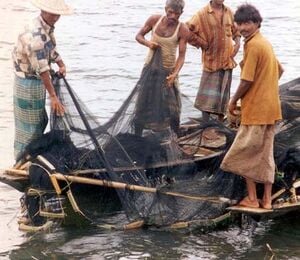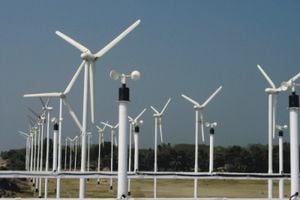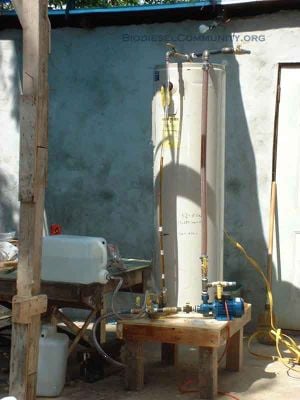
This page highlights various community-driven projects and initiatives in Bangladesh aimed at improving health, education, and sustainability.
 Reverse in endangered fish’s slide to extinction helped by Indigenous effort in Bangladesh, news.mongabay.com (Jan 19, 2024)
Reverse in endangered fish’s slide to extinction helped by Indigenous effort in Bangladesh, news.mongabay.com (Jan 19, 2024)  How Bangladesh is supporting climate refugees, BBC Future (Dec 07, 2023)
How Bangladesh is supporting climate refugees, BBC Future (Dec 07, 2023)  We rarely hear about the disasters that were avoided – but there’s a lot we can learn from them, theconversation.com (Nov 23, 2023)
We rarely hear about the disasters that were avoided – but there’s a lot we can learn from them, theconversation.com (Nov 23, 2023)
Sea level rise[edit | edit source]
Societies can adapt to sea level rise in three different ways: implement managed retreat, accommodate coastal change, or protect against sea level rise through hard-construction practices like seawalls or soft approaches such as dune rehabilitation and beach nourishment. Sometimes these adaptation strategies go hand in hand, but at other times choices have to be made among different strategies. For some human environments, such as so called sinking cities, adaptation to sea level rise may be compounded by other environmental issues such as subsidence. Natural ecosystems typically adapt to rising sea levels by moving inland; however, they might not always be able to do so, due to natural or artificial barriers. W
Maps
Land projected to be below annual flood level in 2030 and beyond, coastal.climatecentral.org
Sea Level Rise, information from climatecentral.org
Climate action[edit | edit source]
Biodiversity[edit | edit source]
Environment quality[edit | edit source]
'Let's Clean Bangladesh' – a regular program of The Dhaka Project - Wikipedia: Floods in Bangladesh, Water supply and sanitation in Bangladesh, Water management in Dhaka
Community energy[edit | edit source]
- solshare.com, added 15:39, 26 January 2024 (UTC)
Wind power[edit | edit source]

Wind energy or wind power is being used in Bangladesh to combat the country's dependence on Natural Gas.[1] Grameen Shakti[1] plans to make renovations for the wind powered plants on the coastal areas of Bangladesh. Bangladesh's Local Government Engineering Department established that the annual wind speed in the coastal belt ranges from 2.96 meters per second to 4.54 meters per second.[2]
With 90 percent of Bangladesh's electricity produced by natural gas, an alternative energy like wind power is being considered. Wind energy is cleaner and cheaper to maintain and does not create as much pollution as natural gas. Bangladesh has a 724 kilometer long coastline and also has many small islands that are capable of collecting strong winds provided by it's northeast region and winter month breezes.[3]
Food activism[edit | edit source]
School gardening[edit | edit source]
Small-scale fish farming in Bangladesh[edit | edit source]

For many people in Bangladesh small-scale fish farming is an important opportunity to generate income and is a significant nutritional source providing protein-rich food all year round. It comprises of a range of options that can be adapted to suit the needs and capacity of people living in rural Bangladesh.
The two approaches commonly implemented on a small scale are:
- Local pond fish farming
- Open water fish farming in lakes, rivers, dams and reservoirs
The benefit to low-income farmers is that they are able to invest in fish cultivation when there is sufficient income, which will then be able to generate additional income and food when other sources of income are limited.
Much of Bangladesh is flooded annually during the monsoon season as water flows into the country through the Ganga (Ganges), Brahmaputra and Meghna rivers. This provides an extensive range of habitats for wild and cultivated fish species. Fish catches are highest after the monsoon rains when supplies of other foods, such as rice, are low. With so much water, fishing plays a vital role in the economy of rural villages.
Social inclusion[edit | edit source]
- ActionAid Bangladesh, press releases, actionaidbd.org, added 16:46, 9 December 2023 (UTC)
- The Dhaka Project
Towards sustainable economies[edit | edit source]
The Grameen Bank of Bangladesh is a pioneer in microfinance - not only microcredit, but savings and other services.
It is now a very large member-owned company with many subsidiary businesses.
Resources[edit | edit source]
Maps[edit | edit source]
Research[edit | edit source]
Bangladesh Centre for Advanced Studies
About Bangladesh[edit | edit source]
Bangladesh, officially the People's Republic of Bangladesh, is a country in South Asia. It is the eighth-most populous country in the world and is among the most densely populated countries with a population of nearly 170 million in an area of 148,460 square kilometres (57,320 sq mi). Bangladesh shares land borders with India to the north, west, and east, and Myanmar to the southeast. To the south, it has a coastline along the Bay of Bengal. It is narrowly separated from Bhutan and Nepal by the Siliguri Corridor, and from China by the mountainous Indian state of Sikkim in the north. Dhaka, the capital and largest city, is the nation's political, financial, and cultural centre. Chittagong is the second-largest city and is the busiest port on the Bay of Bengal. The official language of Bangladesh is Bengali while Bangladeshi English is also used in the government and official documents alongside Bengali.
Bangladesh forms the sovereign part of the historic and ethnolinguistic region of Bengal, which was divided during the Partition of India in 1947 as part of a Muslim union with Pakistan, which it separated from in a bloody independence war in 1971. The country has a Bengali Muslim majority. Ancient Bengal was known as Gangaridai and was a bastion of pre-Islamic kingdoms. Muslim conquests after 1204 heralded the sultanate and Mughal periods, during which an independent Bengal Sultanate and a wealthy Mughal Bengal transformed the region into an important centre of regional affairs, trade, and diplomacy. After the Battle of Plassey in 1757, the maximum extent of British Bengal stretched from the Khyber Pass in the west to Singapore in the east. The creation of Eastern Bengal and Assam in 1905 set a precedent for the emergence of Bangladesh. The All India Muslim League was founded in Dhaka in 1906. In 1940, the first Prime Minister of Bengal, A. K. Fazlul Huq, supported the Lahore Resolution. Before the partition of Bengal, a Bengali sovereign state was first proposed by premier H. S. Suhrawardy. A referendum and the announcement of the Radcliffe Line established the present-day territorial boundary.
In 1947, East Bengal became the most populous province in the Dominion of Pakistan. It was renamed East Pakistan, and Dhaka became the country's legislative capital. The Bengali Language Movement in 1952; the East Bengali legislative election, 1954; the 1958 Pakistani coup d'état; the six point movement of 1966; and the 1970 Pakistani general election resulted in the rise of Bengali nationalism and pro-democracy movements. The refusal of the Pakistani military junta to transfer power to the Awami League, led by Sheikh Mujibur Rahman, led to the Bangladesh Liberation War in 1971. The Mukti Bahini, aided by India, waged a successful armed revolution. The conflict saw the Bangladeshi genocide and the massacre of pro-independence Bengali civilians, primarily targeting intellectuals and Hinduism. The new state of Bangladesh became the first constitutionally secular state in South Asia in 1972, with a large Hindu minority. Islam was declared the state religion in 1988. In 2010, the Bangladesh Supreme Court reaffirmed secular principles in the constitution.
A middle power in the Indo-Pacific, Bangladesh is home to the sixth-most spoken language in the world, the third-largest Muslim-majority population in the world, and the second-largest economy in South Asia. It maintains the third-largest military in the region and is the largest contributor of personnel to UN peacekeeping operations. Bangladesh is a unitary parliamentary republic based on the Westminster system. Bengalis make up almost 99% of the total population. The country consists of eight divisions, 64 districts and 495 subdistricts, as well as the world's largest mangrove forest. It hosts one of the largest refugee populations in the world due to the Rohingya genocide. Bangladesh faces many challenges, particularly corruption, political instability, overpopulation and effects of climate change. Bangladesh has been a leader within the Climate Vulnerable Forum. It hosts the headquarters of Bay of Bengal Initiative for Multi-Sectoral Technical and Economic Cooperation (BIMSTEC). It is a founding member of the South Asian Association for Regional Cooperation (SAARC), as well as a member of the Organization of Islamic Cooperation and the Commonwealth of Nations.
References
- ↑ https://web.archive.org/web/20210505110837/https://bangladesheconomy.wordpress.com/2009/09/12/power-cell-recommends-100mw-wind-power-plant-in-chittagong/
- ↑ http://bangladesheconomy.wordpress.com/2009/09/12/power-cell-recommends-100mw-wind-power-plant-in-chittagong/
- ↑ http://english.peopledaily.com.cn/200507/09/eng20050709_195186.html






